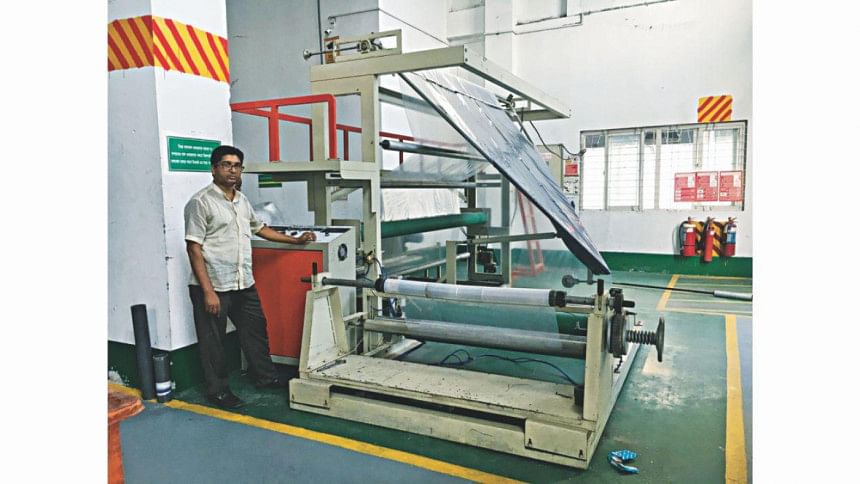Light engineering picking up

Light engineering is showing potential as an emerging sector that supplies machinery to our principal foreign exchange earning garments manufacturing base. These small-scale factories make equipment used in washing, dyeing and finishing for use in the textile industry and are also involved in the process of transforming polythene into plastic film for packaging purposes. Indeed, the machines made by the local engineering companies cost a fraction of what imported machinery would cost and that in turn is saving the country millions in foreign exchange. The fact that all major exporting companies have turned to local sources is testament to the increasing sophistication of local engineering companies and this sub-sector is already worth Tk 25,000 crore annually.
That local entrepreneurs are producing world-class equipment and polythene-based products that are finding uses beyond the garments sector and include agriculture, automobile, pharmaceuticals, food industries, etc., points to a growing trend where thousands of small-scale engineering workshops and factories are employing tens of thousands of workers. Though the capital expenditure in starting up these operations may be small, the sector is not without problems. Bangladeshi companies are meeting roughly half the country's demand for engineering and electrical products but are beset by a lack of sufficient skilled workforce. It is here that policy support needs to come into play by establishing vocational training institutes so that mechanics can be trained quickly. By recognising light engineering as an emerging sector and funding technical education, we can improve the quality of the current workforce and generate interest in the next generation of potential skilled workers to make a living in this area of industrial activity.

 For all latest news, follow The Daily Star's Google News channel.
For all latest news, follow The Daily Star's Google News channel. 






Comments